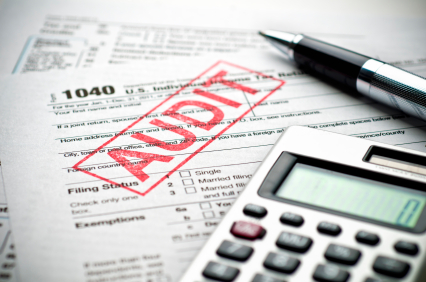
The Best Ways to Get Yourself Audited by the IRS
Now days, there’s a “best of” list of almost everything under the sun. You can find a majority of these best-of lists online and use them to research which minivan on the market meets the needs of your growing family, or which local pizzeria to visit on a Friday night, or believe it or not, there’s even a best-of list of every college student on a budget’s favorite grocery item, the 40-cent block of Ramen noodles. But there is one best-of list that most of us don’t want to be associated with – the best ways to get audited by the IRS.
Schedules and Forms That May Lead to an Audit
According to the IRS 2013 Databook, if you file of any of the following schedules or forms with your personal return, the IRS is 5 times more likely to audit you than someone who files a return without them.
- Schedule C – Profit or Loss From a Business
- Schedule E – Supplemental Income or Loss From Rental Real Estate, Royalties, Partnerships, S Corporations, Estates, Trusts, REMICs, etc.
- Schedule F – Profit or Loss from Farming
- Form 2106 – Employee Business Expenses
Other Red Flags That May Lead to an Audit
Five other red flags that commonly lead the IRS to your doorstep to audit your tax return:
- Your charitable contributions look way too charitable – Don’t exaggerate your non-cash donations. You are required to keep a written receipt of any non-cash donations over $500. Be realistic about the value of items donated to Goodwill.
- You take a deduction for a home office that you do not run a home business out of– The IRS has very specific rules for determining whether your den qualifies as a home office. Your home office must be your primary place of business and used exclusively for work in order to deduct it as an expense on your taxes.
- You and your ex-spouse claim the same child as your dependent – If you have primary custody of a child, make sure no one else is claiming the child as a dependent on their tax return. Even if you have already provided documentation to the IRS evidencing yourself as the primary caregiver for the child with previous year returns, if someone else claims the child as a dependent on their return, you may still be flagged for an audit
- You claim the Earned Income Tax Credit –The Earned Income Tax Credit is the source of more instances of tax fraud than almost any other program. If you are eligible for the credit, make sure you have the appropriate documentation to confirm you qualify.
- You fail to report all your income – This can be easier than it sounds. For those of us who have more than just one primary job, or sources of income other than wages, forgetting to include one of those sources can be possible. Some investment firms do not submit documentation for their clients until February, so don’t file your tax return in January unless you are certain you have all your proper documentation.
If you have questions regarding tax deductions or credits you may qualify for, need assistance preparing your return, or responding to an audit, contact the professionals at Nielsen Law Group for a free and confidential consultation today. Call (480) 888-7111 or submit a web request here.

